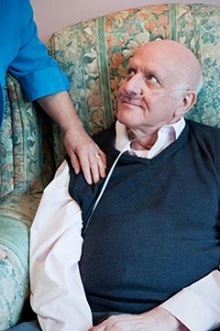Heart failure is the biggest single cause of hospital admissions in adults aged over 65 in the Western world. It affects 26m people worldwide and more than 1 million new cases are diagnosed every year.
More people die from heart failure than from some advanced cancers, including breast and bowel cancer. Ageing populations and deteriorating lifestyles mean heart failure is the most rapidly growing cardiovascular condition. One in 5 people aged 40 and over will develop heart failure in their lifetime and the treatment costs are estimated at $65 billion a year worldwide.
Despite this, it remains misunderstood. Rather than a sudden, total failure of the heart, it is a progressive weakening characterized by an inability of the heart to pump enough blood around the body. Treatments address symptoms such as fluid retention and breathlessness but there is no cure and survival rates have not improved over the past two decades.
Heart failure has many causes, from high blood pressure, coronary heart disease, kidney disease, diabetes, anemia to common viruses.
Nick Hartshorne-Evans was just 39 when he was diagnosed with heart failure following a viral infection. The British father-of-two’s hopes of a return to full health sank as he heard the physician’s prognosis.

“I heard my doctor say ‘heart failure’ and it sounded like a death sentence. The word ‘failure’ is very difficult to hear psychologically,” Hartshorne-Evans said.
In fact, the condition is not so much a failure as an ‘inefficiency’ and Hartshorne-Evans said that with medication and by carefully managing his lifestyle he planned to live into old age.
Four years later, Hartshorne-Evans remains optimistic. Yet for many people living with heart failure, everyday activities like walking and climbing stairs can become increasingly difficult. Some 25% die within a year of diagnosis and 50% are dead within five years.
“Even though it’s such a serious illness, there have been few new drugs shown to reduce mortality. Treatments have not changed in years,” said Beat Steffen, a former cardiovascular surgeon and now Head of Critical Care at Novartis.
New treatment options are on the horizon. Healthcare companies and care providers are currently pursuing various approaches in their efforts to develop more effective ways of treating heart failure. These include personalized care planning to foster greater patient involvement in managing their conditions, while implantable devices are being designed to regulate the heart rate or check the blood pressure, providing physicians with early warning of a worsening condition.
Drug development efforts, meanwhile, are exploring new ways of using the body’s own systems to control the condition and ultimately extend patients’ lives after an episode of acute heart failure.
For Hartshorne-Evans, who runs The Pumping Marvellous Foundation, a patient-led support organization in the United Kingdom for people with heart failure, the low survival rates underline the need for new treatment options to improve the outlook for patients as they seek to maintain their quality of life.
“It’s all about achieving stability,” he said. “You embrace the lifestyle changes you have to make but consistency is still hard to get as you might have four great days followed by three bad ones. What many patients want to do is manage their symptoms and maintain their quality of life as well as they can.”



